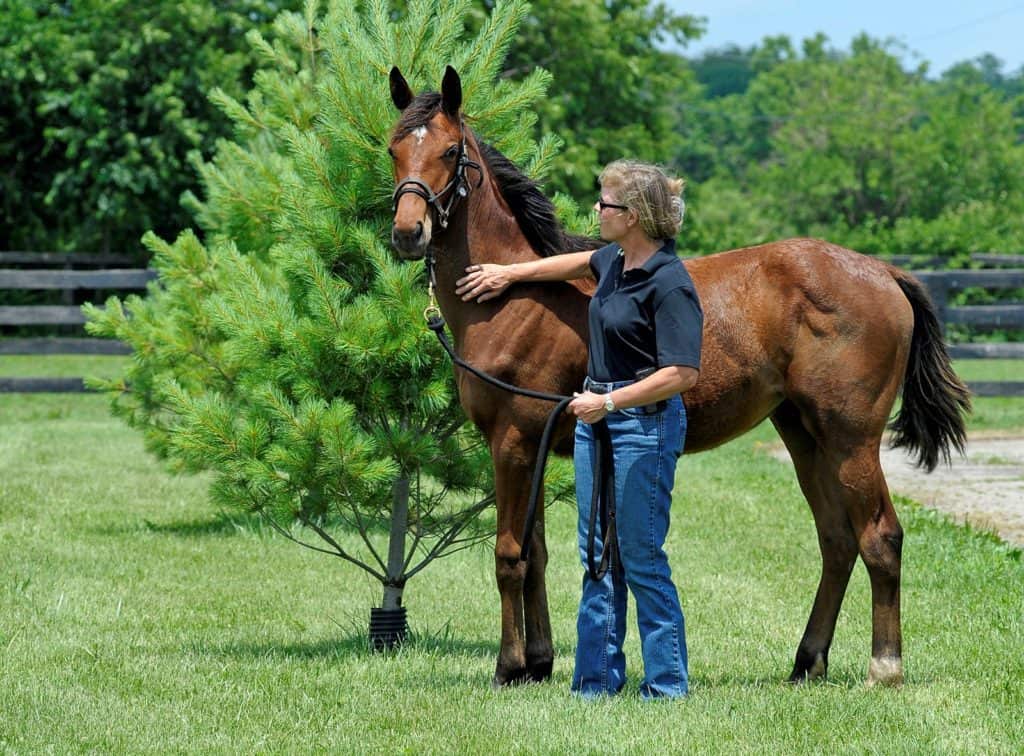
Genetic Conditions by Body System
Testing for and identifying which horses could potentially be affected by genetic conditions is important not only for buyers and breeders but also for the overall health of the breed itself.
Horse breeding from planning through foal care

Testing for and identifying which horses could potentially be affected by genetic conditions is important not only for buyers and breeders but also for the overall health of the breed itself.

Does your horse drool like a dog? Here are some reasons why, from the benign to the life threatening.

Weak or recumbent foals require early veterinary intervention. Here’s what to watch for.

Dr. Udeni Balasuriya’s research focus is to identify the viral and host factors involved in the establishment of EAV carrier state in the stallion.

Dr. Clair Thunes defines the differences between grains, concentrates, and complete feeds for horses and explains how much a horse needs.

Horses are at risk for contracting a number of diseases that can have mild to devastating consequences.

Learn about 20 important equine infectious diseases that could make your horse sick, how they are spread, and ways to prevent them in our easy-to-follow visual guide.

Do all the supplements, concentrates, and forages on the market have you confused about what’s best to feed your horse? Learn what your horse really needs to eat from equine nutritionist and consultant, Dr. Clair Thunes.

A reader seeks answers about a Caslick’s procedure and how the area should be opened prior to foaling.

Ernest Bailey, PhD, a geneticist at University of Kentucky’s Gluck Equine Research Center in Lexington, shares updated information about inheritance in horses.

When feeding horses in groups, increasing their distance apart and time spent eating might help reduce aggression.
My horse has a rude habit of flashing my friends when they we visit him. How can I stop this behavior?

Summer is peak season for horse shows and events, and Colorado State University (CSU) veterinarians remind riders that it’s important if traveling to take steps to help prevent the spread of equine infectious disease.

If research shows that Thoroughbreds and Warmbloods are more likely to have twin pregnancies, could this be in relation to the number of mares that receive injections to encourage ovulation?

An equine behaviorist offers advice for managing an orphaned filly who exhibits dangerous behaviors.

Researchers implanted embryos from ponies, saddle horses, and draft horses into surrogate mares of different sizes and observed significant differences in weight, height, and metabolic markers among the resulting genetic half-siblings
Stay on top of the most recent Horse Health news with
"*" indicates required fields